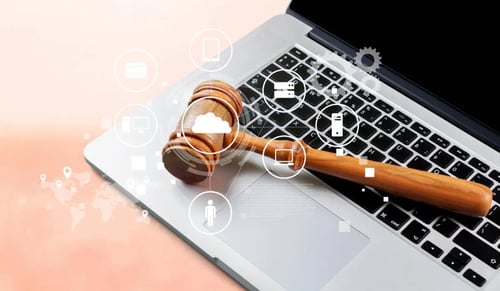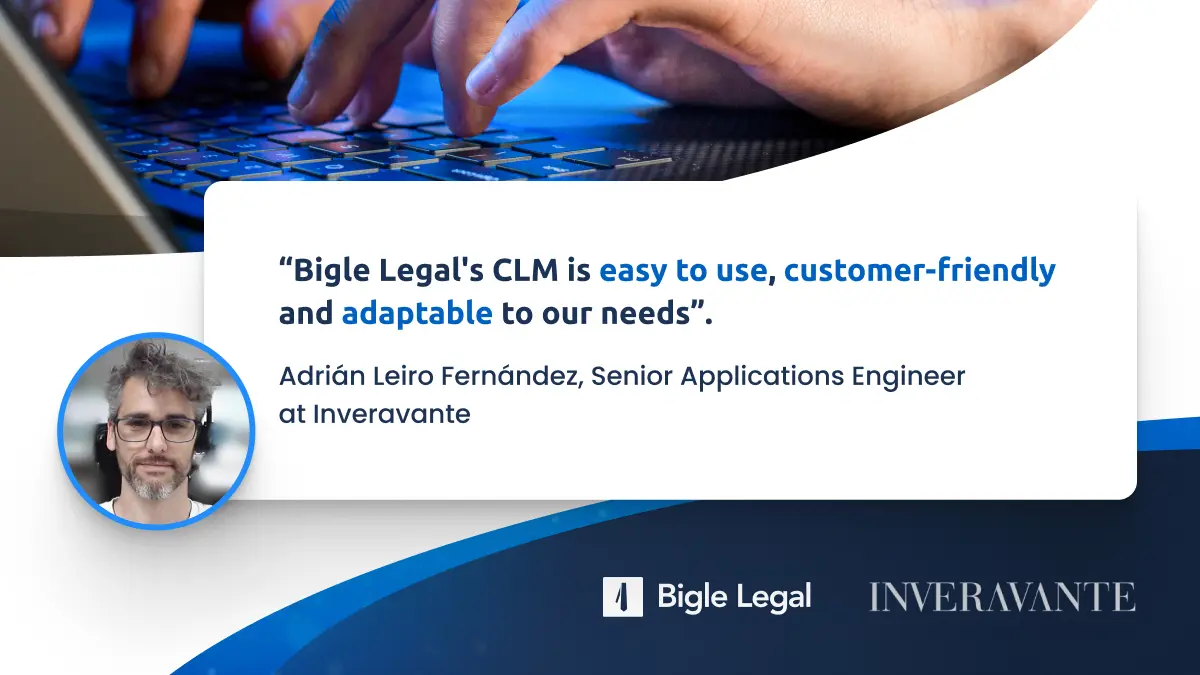How AI in a CLM can improve access to justice
Artificial Intelligence (AI) applied to the right legal technology can bring revolutionary solutions, such as the right to justice. This is a fundamental right for all citizens. Still, in many cases, it can be complicated and costly due to manual processes and the overwhelming amount of paperwork in the legal system. In this article, you will discover how technology can greatly facilitate access to justice for the public: we will look at how this could be achieved through AI-powered Contract Lifecycle Management (CLM) software. Let's get started!
A legal system with room for digitalisation
If you are a lawyer, you know that the legal sector is going through a period of change, and in the business world, digitalisation is already a reality in legal departments: legal operations, hand in hand with legal tech tools, are here to stay. Green shoots can also be seen in the administration of justice, but there is still a lot of work to be done.
CLM + AI or how to reduce manual tasks by 80%
The legal system relies heavily on the use of language, which is written down as evidence in the form of pleadings, judgments and other legal documents. This generates an enormous amount of paperwork that needs to be analysed, drafted and reviewed by judges, lawyers and other parties involved in each case. With limited resources, the justice system can benefit greatly from technology.
An AI-powered Contract Lifecycle Management (CLM) solution is a platform that automates the processes involved in drafting, reviewing, approving, signing, classifying and tracking of the legal documents’ events. For example, using AI-powered CLM, a lawyer can generate the most complex contracts in a matter of seconds by simply answering a few questions in the system. This eliminates the need for manual drafting and reduces the potential for errors.
"Once the paperwork is streamlined, technology will make way for a more fast and affordable justice system"
A Gartner study shows that change is coming: it predicts that by 2030, 80% of project management tasks will be performed by AI, powered by big data, machine learning (ML) and natural language processing (NLP, Natural Language Processing). Applying this to the legal sector, lawyers and judges will be able to focus on more important and strategic tasks, thanks to AI's ability to identify and correct potential errors in legal drafting, improving the accuracy of the documents. Once the paperwork is streamlined, technology would pave the way for justice that recognises and protects citizens' rights most efficiently.
In addition, because they are based on pre-established rules, these solutions ensure proper legal compliance for both businesses and public institutions, guaranteeing that contracts and other documents are valid and binding.
The Document Automation Revolution
The document automation offered by a state-of-the-art CLM, coupled with the power of AI, allows judges and lawyers to automatically generate very complex documents, such as court decisions, saving hours of work that can be allocated to more strategic tasks or managing more cases in record time.
In addition, automation allows structured data to be extracted from legal documents. For example, an AI-powered CLM can extract relevant information from contracts, such as dates, terms and obligations, and then store it in a structured way. The availability of this organised data makes it easier to analyse and search for information, which can be very useful in complex investigations or cases.
As we can see, AI can instantly identify relevant documents and specific data in the face of large amounts of information, speeding up the review process and reducing the time required by the justice system.
A legal database powered by CLM
Access to justice is key to ensuring equality and fairness in a democratic system. However, several barriers, such as high legal costs and complex procedures that are eternalised in time, can make access difficult for many citizens. This is where AI applied in a CLM can play a decisive role in improving access to justice.
AI combined with CLM makes legal work more efficient and ultimately more accessible to all. In addition to the benefits already discussed, an automated legal document management system would provide judges and lawyers with an unprecedented legal database. At the touch of a button, a CLM allows access to previous documents through intelligent search. AI can help identify common contract clauses or terms, a milestone in the consistency and coherence of legal drafting that also serves as an unprecedented search tool.
Democratisation and reduction of barriers
-
The democratisation of legal knowledge:
Technology enables citizens to access legal tools and resources, empowering people to participate in legal processes in an informed way. -
Breaking down language barriers:
Machine translation and AI can break down language barriers, facilitating communication in multicultural legal environments. -
Access to justice for all:
Overall, the combination of MLC and AI promotes broader and more equitable access to justice, which benefits society as a whole.
Therefore, technology has a key role to play in ensuring open and accessible justice for all. AI combined with state-of-the-art CLM can simplify legal processes, streamline workflows and ultimately improve access to justice for all. Working with legal professionals, this technology can help build a more efficient, fair and inclusive legal system.
It is a way to make the legal system more accessible to individuals. Ultimately, it is a way to democratise access to justice and empower people to understand and exercise their legal rights more effectively.
From automatically generating legal documents to analysing and mining structured data, AI can make a huge difference in the ability of legal professionals to handle large volumes of work efficiently and accurately. With the right implementation of this technology, it is possible to build a more efficient and fairer legal system that is in line with the fundamental principles of democracy.
Want to know more? You should know that CLM technology has many more features and benefits to explore and apply to the digitisation of justice. Check them out and follow us on LinkedIn so you don't miss our next blog!
 By
By




